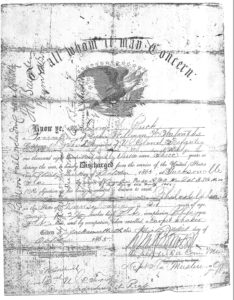
Black Families’ Unending Fight for Equality: Teaching Civil War Pension Records
When teaching the history of the United States Colored Troops (USCT), students often ask how we can find historical records from these historically marginalized people? Since many of the soldiers were working poor and formerly enslaved, they did not have (for various reasons) the time, resources, or (in some cases) ...
Read More
Read More
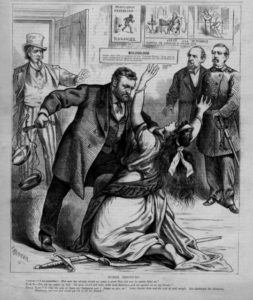
Grant’s Mixed Legacy
Books can have an impact. Readers without patience to wade through all 1,074 pages of Ron Chernow’s frequently cited biography are told in the introduction that Ulysses S. Grant was “the single most important figure behind Reconstruction” and that the “imperishable story of Grant’s presidency was his campaign to crush ...
Read More
Read More
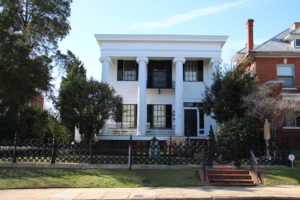
Civil War Macon
On July 31, 1864, Mary Ann Lamar Cobb, the wife of the local rebel commander, Howell Cobb, wrote her mother: “A bomb fell behind the Ocmulgee Hospital right across the street and a ball or a bomb one or the other struck the in front of Mr. Holt’s house and ...
Read More
Read More

Introducing Ann Tucker to the Muster Team
Muster is proud to introduce Ann Tucker as a regular contributor. Ann L. Tucker is an assistant professor of history at the University of North Georgia. She earned her BA at Wake Forest University and MA and PhD the University of South Carolina. Dr. Tucker’s areas of expertise include the US ...
Read More
Read More
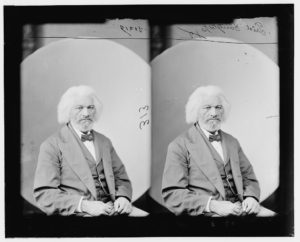
“It is no part of our duty to confound right with wrong”: Frederick Douglass and Ulysses S. Grant on Reconciliation and Its Pitfalls
Speaking in New York City in 1878, Frederick Douglass had a warning for white northerners about how they remembered the Civil War. "Good, wise, and generous men at the North," Douglass observed, "would have us forget and forgive, strew flowers alike and lovingly, on rebel and on loyal graves." A ...
Read More
Read More
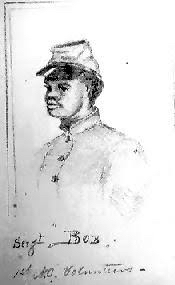
Responding to the Call: Engaging the Public in Conversations about African American Civil War Participation
Located at the edge of the Great Dismal Swamp, refuge to runaway slaves for over two centuries of American slavery, and connected to North Carolina’s coastline by a complex series of waterways, Elizabeth City and its surrounding rural counties present a verdant landscape filled with unknown, unspoken, or unwritten African ...
Read More
Read More

Civil War Era Scholars Respond to January 6, 2021 Events and Aftermath
January 6, 2021 was a historic day in the nation’s history. Images of armed white men and women storming the Capitol Building carrying Confederate battle flags and other emblems flooded social media and television screens. Resulting in the death of two Capitol police officers, this twenty-first century contestation over Civil ...
Read More
Read More
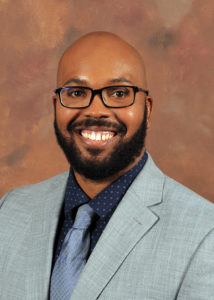
Welcoming Holly Pinheiro to the Muster Team
We are pleased to announce the addition of a new correspondent to our Muster team, Holly Pinheiro, Jr. Holly is an Assistant Professor at Augusta University in the Department of History, Anthropology, and Philosophy. His research focuses on the intersectionality of race, gender, and class in the military from 1850 through the 1930s ...
Read More
Read More
2021 SCWH Conference Update
The Society of Civil War Historians is very pleased to announce that, after the cancellation of our 2020 conference, we will be holding our first virtual conference on June 17-18, 2021. The virtual format seemed the most sensible approach in light of the continued uncertainties of the pandemic and ...
Read More
Read More
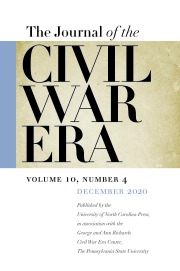
Previewing the December 2020 JCWE Issue
This is the first editors’ note we have penned since the brutal killings of George Floyd, Breonna Taylor and many other Black people and people of color in the spring of this year, and since the uprisings for racial justice that these all-too-common murders have prompted around the globe. The ...
Read More
Read More
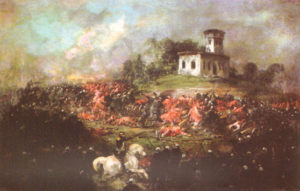
The War of the Rebellion a European-style War?: Latin American Comparisons
The War of the Rebellion in North America has brought forth a massive number of studies in military history. Very few of them are comparative in nature.[1] In addition, there does not seem to be a corresponding scholarly interested in the many civil wars and revolutions in Latin America during ...
Read More
Read More
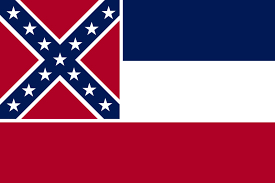
No Flag, No State
Comedian Eddie Izzard once did a routine where he described the cunning nature of the British to “steal countries” by claiming they had a flag. He starts the bit by describing the British conquest of India and simulates a conversation between an indigenous person and a British soldier’s first encounter ...
Read More
Read More
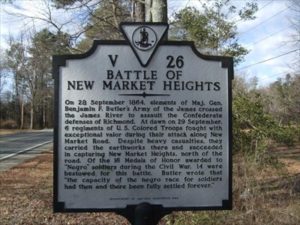
The Most Heroic Day You’ve Never Heard Of
When I first heard of the Civil War Day of Action led by the Journal of the Civil War Era, I was ecstatic and excited at the prospect of bringing forgotten and ignored history to people. I also knew my location. It would be 156 years almost to the day ...
Read More
Read More
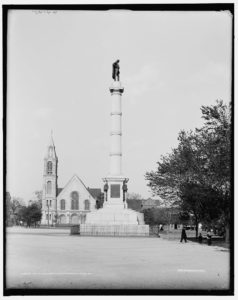
A Crashing Monument and the Echoes of War
The beeping of construction equipment pierced the morning air. The dull sounds of traffic and commuters interrupted by a backhoe in the middle of the park. Then, a groan and a creak, and the taut cable began its work. The column upon which John C. Calhoun's likeness stood for more ...
Read More
Read More
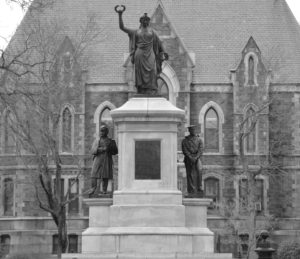
But What of Union Civil War Monuments?: The Shortcomings of Northern Civil War Commemoration
As Confederate Civil War monuments continue to come under siege for their white supremacist representations of the nation’s most transformative conflict,[1] Union Civil War monuments and their inscriptions exist in an illusory realm of public approval. In fact, there is an inherent belief among many people that Union Civil War ...
Read More
Read More

Extending the Civil War Day of Action
I had conflicted feelings when the controversy over the Confederate battle flag and statues commemorating Confederate traitors recently flared up once again. On the one hand, I was ecstatic this summer when I saw the spontaneous, collective work of art that activists created on the base of Robert E. Lee’s ...
Read More
Read More